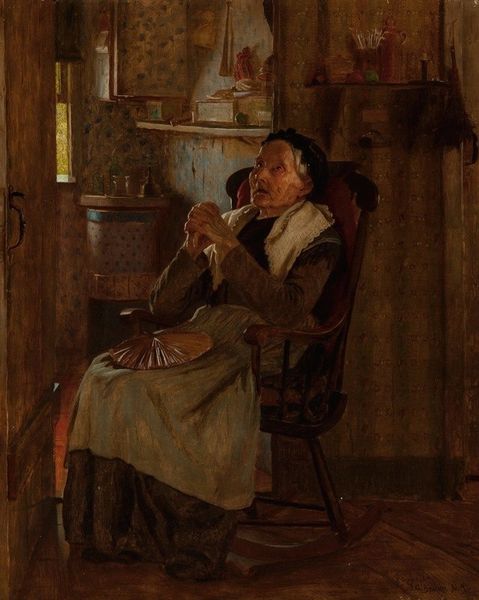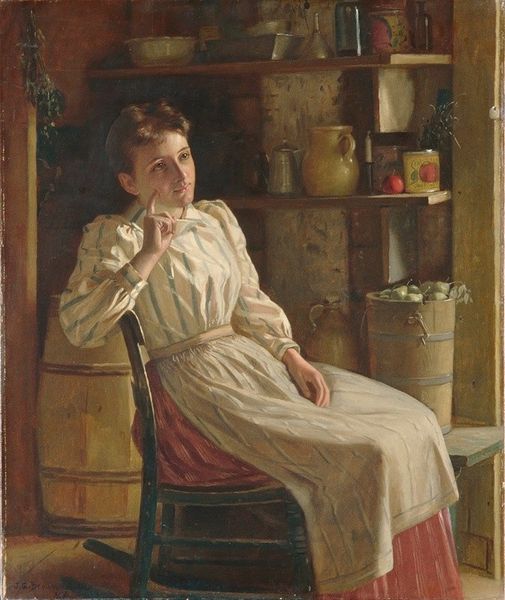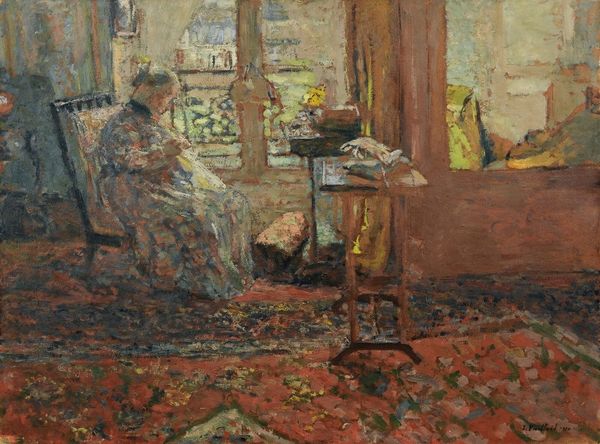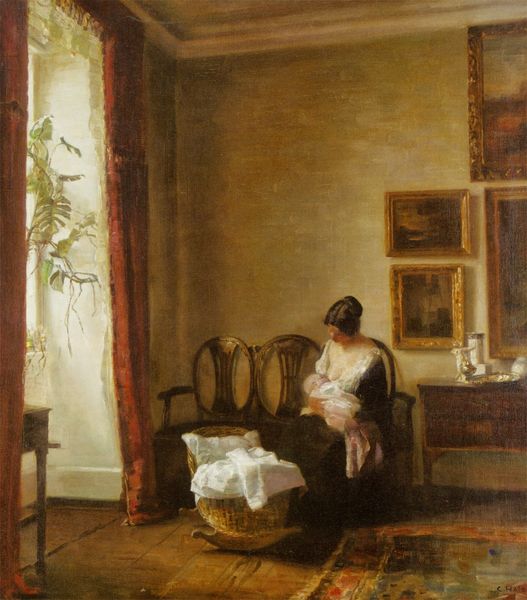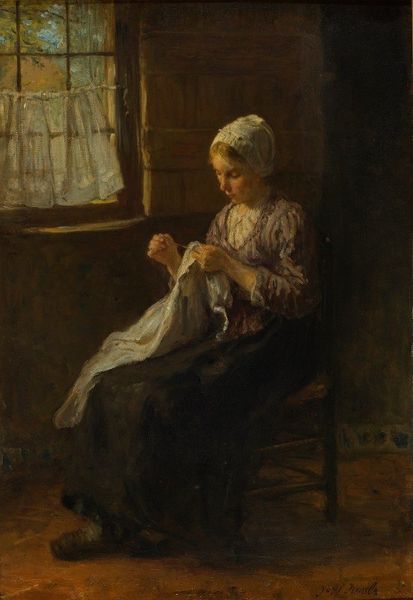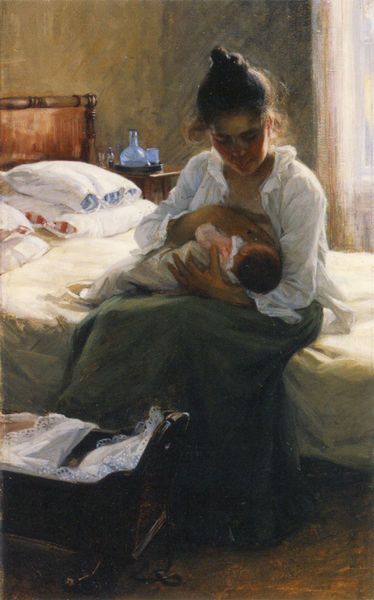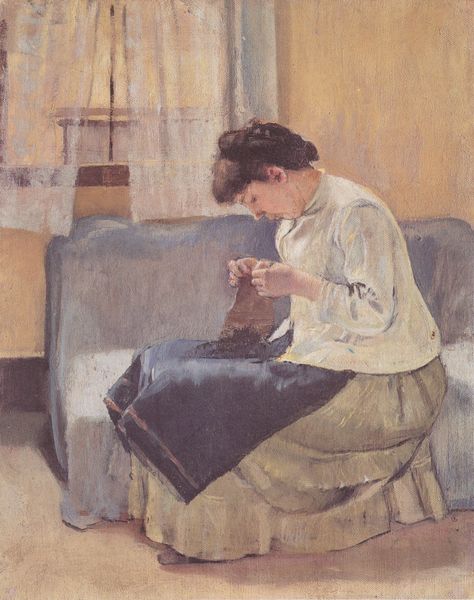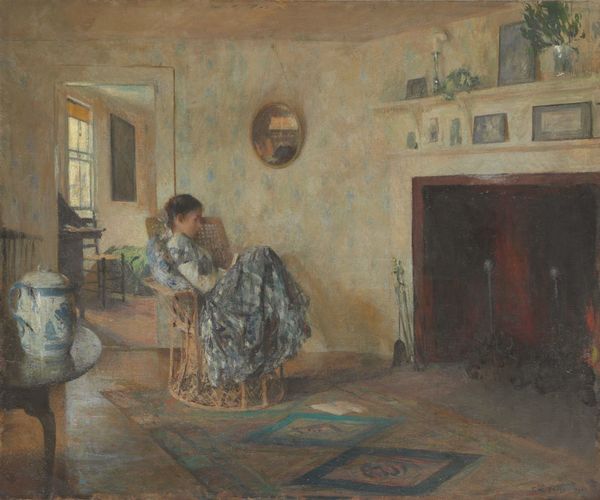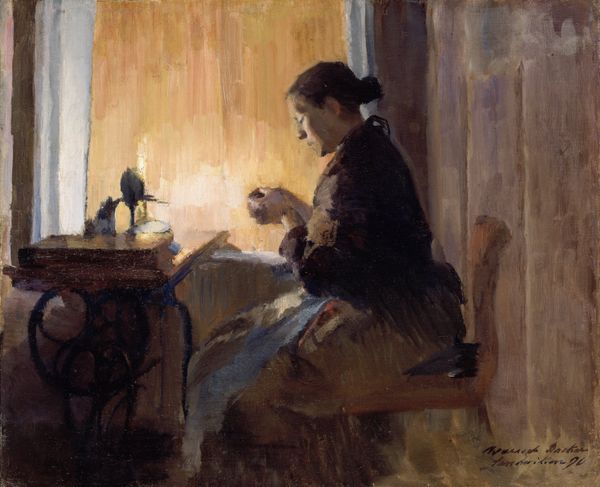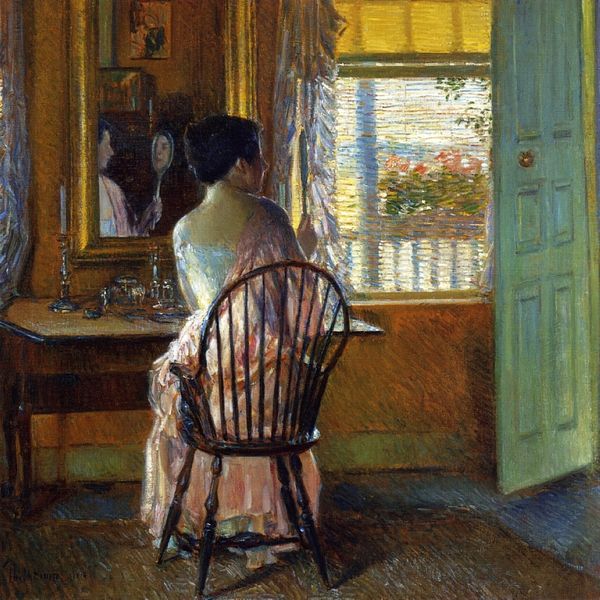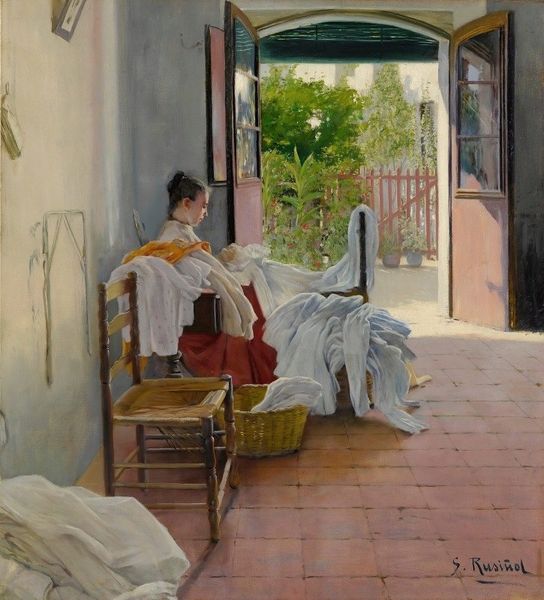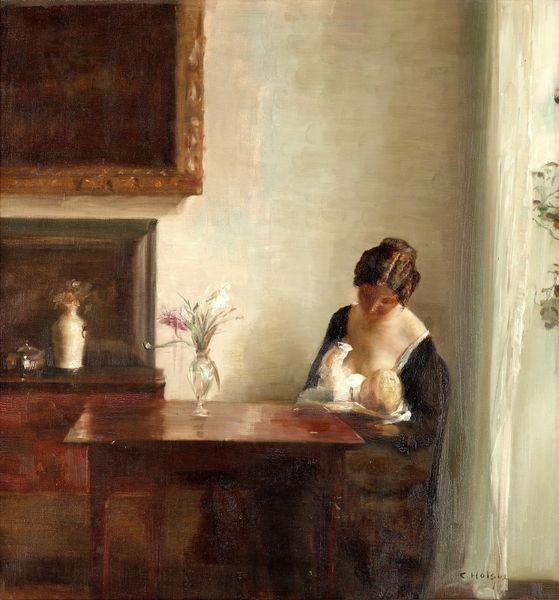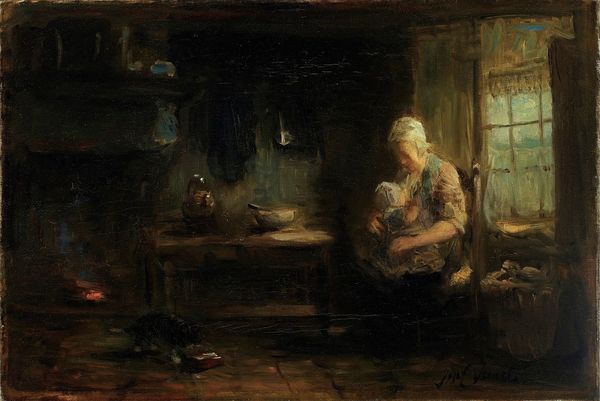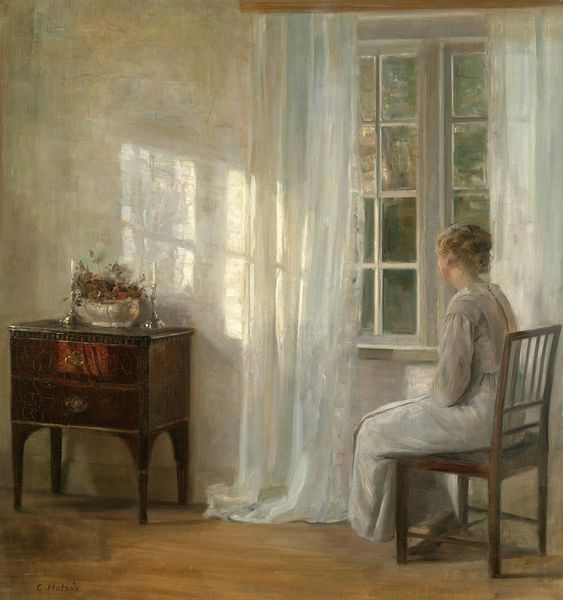
Copyright: Public Domain: Artvee
Curator: Here we see William Merritt Chase's "For the Little One," painted around 1896. Chase, known for his impressionistic style, captures a quiet domestic scene. What’s your first impression? Editor: It’s bathed in such a gentle light. It makes me think of Sunday afternoons, that kind of hazy quiet you get when someone’s softly humming. There's a meditative quality. Curator: Yes, the intimacy is striking. Consider the broader context. Late 19th-century American art saw a surge in genre paintings, often idealizing women within domestic spheres. How might Chase’s work speak to or deviate from that trend? Editor: The details are soft, unfixed somehow. The composition centers around this woman sewing, right? But instead of presenting her as the picture of perfect domesticity, he captures this fleeting moment, her concentration, a softness. The composition is honest. The entire painting, the curtains, the chair seem to exude the feeling of impermanence and subtle flux. You see the influence of Impressionism here of trying to fix this transient instant onto the canvas. Curator: Exactly. While the subject aligns with traditional portrayals of women, Chase's artistic choices subtly challenge expectations. The brushwork feels loose and liberated, far from the hyper-realism often used to reinforce gendered ideals. Notice the play of light on the fabric, the almost abstract rendering of the background. Editor: And even that little scrap of fabric on the floor has some weight to it, a compositional gravity as a little brother to the big drama up there in the centre. It's this perfect balance of focus and ethereality that pulls me in. It looks simple at first but contains this depth that stays with you long after the painting is out of your view. Curator: Perhaps it's a reflection on how identity, even within seemingly fixed roles, is a complex, layered experience, always under construction. Editor: Absolutely. Thanks to it I realize just how fleeting life is... or at least it reminds me. Curator: A wonderful final reflection.
Comments
No comments
Be the first to comment and join the conversation on the ultimate creative platform.
